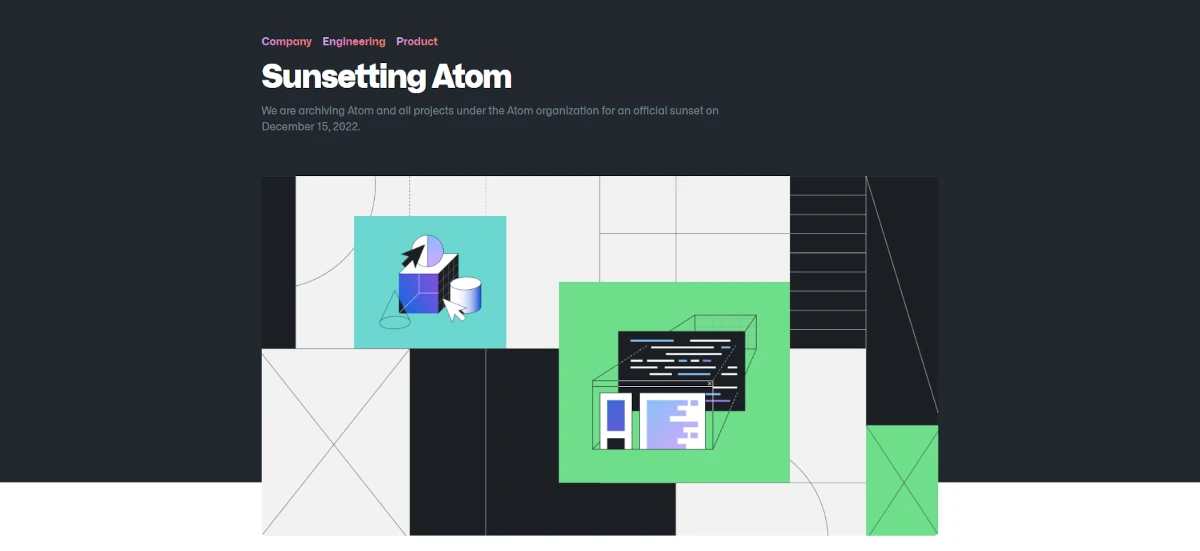
Last February we wrote an article in which we explained that Adobe had abandoned Brackets. The project continues, but by the community, and not by Linux. Linux users have been abandoned, so we had to use alternatives such as Visual Studio Code or its versions without telemetry. We could also choose Atom. We could, because its owner, GitHub, already announced that they are going to give him the settlement.
About a year ago, when I started to edit some things, I started experimenting with HTML. In any tutorial they tell you that a notepad is enough, Kate in my case, but it is not very efficient. The first thing I wanted to do was format the code, and with Kate it wasn't an easy option. That's when I found Atom, and then I met Emmett, and I was very happy with him. With the passage of time I passed Visual Studio Code, and that's something GitHub seems to have noticed.
Microsoft bought GitHub; GitHub kills Atom
Atom was created in 2014 with the best intentions, thinking that it was powerful and customizable, and it was all laughs until Microsoft bought GitHub. Microsoft has its Visual Studio Code, with more user base and from which it prefers that there is no competition, so why keep both?
Although the official version says otherwise. According to GitHub:
Atom has not had significant feature development in recent years, although we have carried out maintenance and security updates during this period to ensure that we are being good stewards of the project and the product. As new cloud-based tools have emerged and evolved, the involvement of the Atom community has dwindled considerably. As a result, we've decided to end Atom so we can focus on improving the cloud developer experience with GitHub Codespaces.
They also say that it is a difficult goodbye, that they paved the way for thousands of applications, among which Visual Studio Code, Slack or GitHub Desktop stand out, but we must look to the future. And what is in that future? Not too much. In the Roadmap of this goodbye there are only three points.
- On Wednesday, June 8, they announced the goodbye of Atom, which will cease to exist in six months.
- In those six months, the company will continue to inform all users that Atom will no longer receive support, something that they will also do in atom.io.
- On December 15 they will archive the atom/atom repository and other organization repositories.
Can the same thing happen with Brackets?
Well, Atom is a FOSS-software, that is, free and open source. The possibility is there, but it will not be easy for them. Brackets has its user base, and it has it mainly because they are used to it and, if I'm not mistaken, it was the first to natively add something to see what we were typing in real time, at least in documents like the ones in HTML/CSS.
It can't be ruled out that someone would step forward and continue development of Atom, but he would have a lot of work ahead of him. In fact, as GitHub itself acknowledges, latest additions to the editor came a long time ago, limiting itself to delivering security patches in the latest updates.
The good thing about Atom, or the good thing that I saw in it at the time, was that it was very customizable and compatible with many extensions, but that is something that we also have today in Visual Studio Code or Brackets. Also, performance Atom was never the best, so never say never, but I don't think that's the most likely. Or yes, probably yes, but not the best idea.
In any case, the only sure thing is that GitHub has announced the goodbye to Atom, so it is better to move to another editor as soon as possible to get used to the new one.